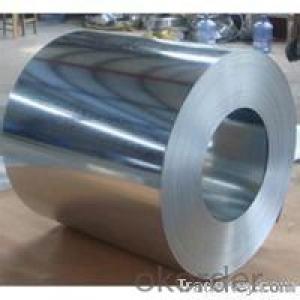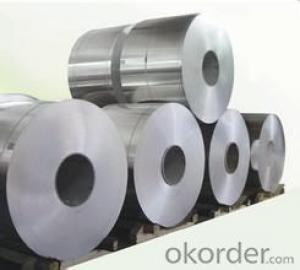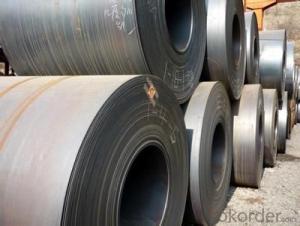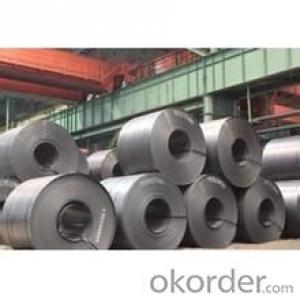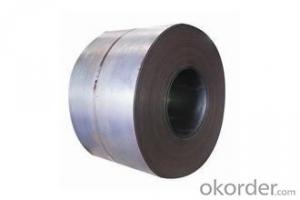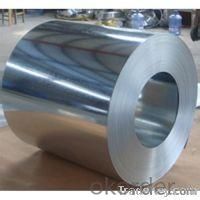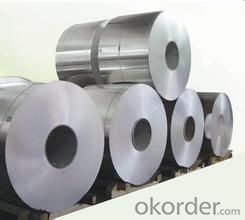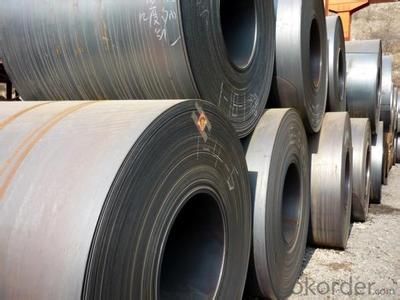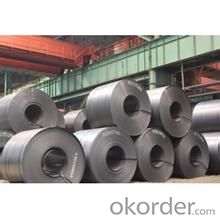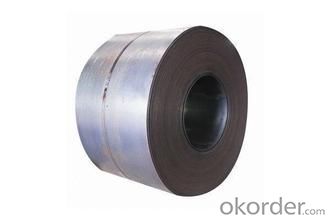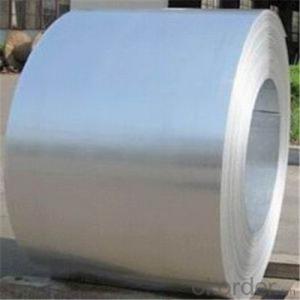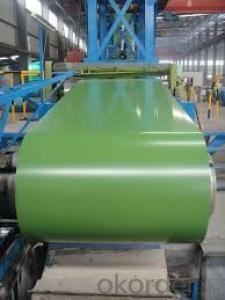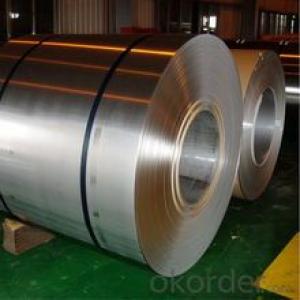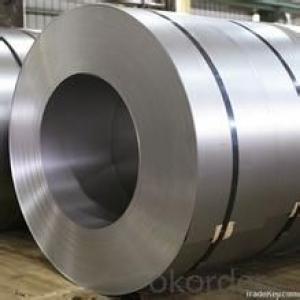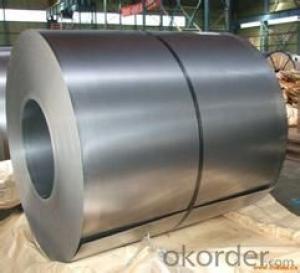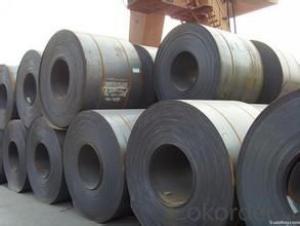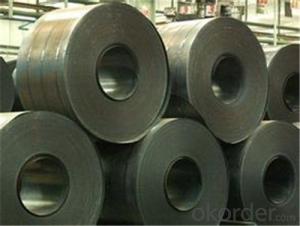Hot Rolled Steel Sheet -SAE1006/1008 in Good Quality
- Loading Port:
- Tianjin
- Payment Terms:
- TT OR LC
- Min Order Qty:
- 30 m.t.
- Supply Capability:
- 500000 m.t./month
OKorder Service Pledge
OKorder Financial Service
You Might Also Like
Product Description:
Product: | Hot Rolled Steel Coils/Sheets |
Material: | Q195,Q235,A36,SS400,S235JR,Q345,ST37-2, CCSB etc |
Standard : | JIS G3002 GB/T251B |
Technique: | hot rolled |
Thickness | 1.2mm to 200mm |
Tolerance of thickness: | :+/-0.03mm |
Width: | 750mm-2000mm |
Tolerance of width: | :+/-5.00mm (aiming to +/-2.00mm) |
Normal width: | 914mm, 1000mm, 1200mm, 1219mm, 1250mm,1500mm |
Length: | According to requirement |
Coil ID: | 508mm-610mm |
Coil Weight: | 10-25 Metric Tons |
Surface: | Black, Chromate, fingerprint resistant treatment, slight oiled or non-oiled, dry |
Port of Loading: | Tianjin/Shanghai port |
Packaging Details: | Standard export packing or according to the clients required |
Delivery Time | Within 30 days after received 30% deposit or workable L/C |
Payment Terms: | L/C,T/T |
Our Hot-Rolled Steel Sheets and Coils are applied to a wide range of uses such as automobile, electrical appliance, machinery manufacturing, container manufacturing, shipbuilding, bridge, pipeline, and receive high acclaim from our customers for its excellent quality.
- Q: What is the maximum thickness of steel coils?
- The maximum thickness of steel coils can vary depending on various factors such as the type of steel, manufacturing process, and industry requirements. However, in general, steel coils can range from a few millimeters to several inches in thickness.
- Q: 420 440 1045 or 1065 ive bought knifes with these steel grades and i want to know which one is better.
- SAE 440 is the best. Classified as high grade cutlery steel. There are various grades of 440: A, B, C, and F. 440 A is the most stain resistant while 440 C has the most carbon and can achieve the highest hardness (Best edge Retention). SAE 440 Chemistry: 16 - 18% Chromium, 0.60 - 1.2% Carbon, 0.75% Molybdenum. SAE 420 is pretty good. Classified as cutlery steel, it is a stain resistant grade but has less chromium and significantly less carbon than SAE 440. SAE 420 Chemistry: 12 - 14% Chromium, 0.15% Carbon (min), 0 Molybdenum Chromium is what makes the steel corrosion resistant. It also adds toughness. Molybdenum adds extra corrosion resistance and adds hardenability. So you can see by chemical components that 440 is highest quality although that also means more cost. 1045 and 1065 are low quality steels and you should probably never use them for a knife. The 1 indicates plain carbon steel with little other alloying elements. The last two digits indicate how much carbon is in the steel. 1045 has 0.45% carbon, mid-range hardenability. 1065 has 0.65% carbon, high hardenability. So if I had to choose I would choose 1065 over 1045 but the difference isn't that noticeable. Everything I said here assumes they have all had the optimum Quench and Temper heat-treatment for their chemistry grade.
- Q: What are the common methods of storing steel coils in warehouses?
- Warehouses employ various methods to store steel coils, taking into account factors such as coil size and weight, available space, and resources. Here are some commonly utilized techniques: 1. Block stacking: Coils are stacked directly on top of one another in a block formation. Typically, they are arranged in rows and columns, with wooden or rubber blocks inserted between layers to maintain stability and prevent damage. 2. Racking systems: Racks are frequently employed to store steel coils efficiently. These systems encompass different types of racks, such as cantilever racks, coil racks, and structural racks. They provide an organized framework for storing and accessing coils, maximizing space utilization. 3. Coil cradles: Designed specifically for steel coils, coil cradles consist of multiple cradles or saddles that securely hold the coils in place. By stacking these cradles, warehouses can optimize vertical space usage. 4. Coil pads: Coil pads are flat platforms made of materials like wood, rubber, or foam. They are placed on the warehouse floor, serving as a base for directly stacking steel coils. Coil pads distribute the weight evenly while protecting the coils from floor contact damage. 5. Slit coil storage: Specialized storage systems are employed for storing narrower and lighter slit coils. These systems often include racks or shelves equipped with dividers or separators to maintain coil organization and prevent unraveling. It is crucial to observe safety precautions when handling and storing steel coils in warehouses, regardless of the storage method. This entails ensuring proper weight distribution, utilizing appropriate lifting equipment, and adhering to industry-specific guidelines and regulations.
- Q: Im in the process of replacing the gutters/down spouts on my house. The top of the house is four sided. The bottom level has a porch area with 3 sides, two smaller roofs in the back, and one small roof on the side with all stainless steel gutters. A two story house. Not sure of the demensions. They were made at a Steel Mill where the previous owner, worked.This guy wants to buy the stainless gutters but I need to know the market value of this steel and offer him a price. Can someone tell me what I can sell it for? Does it go by the pound? Foot? Can you give me an idea please? Theres a lot of it! I have no clue what to do! Thanks!
- Depends on the company but you'd probably get a decent amount of money. Try searching different sites.
- Q: How are steel coils used in the manufacturing of agricultural trailers?
- Steel coils are used in the manufacturing of agricultural trailers to provide strength, durability, and stability to the trailer's frame, ensuring it can withstand heavy loads and harsh working conditions. These coils are typically shaped and welded to create the trailer's structural components, such as the chassis, sidewalls, and flooring. Additionally, steel coils can be cut and formed into various parts, including axles, suspension systems, and hitch assemblies, to further enhance the trailer's performance and functionality in agricultural operations.
- Q: I'm trying to put together a small structure using galvanized steel electrical conduit (3/4) and I can't seem to find a T-junction conduit coupler anywhere. I'm wondering if I could weld the tubing together, but I'm not sure if I can weld galvanized steel. Also, if I can weld them, is there any special technique that I need to use outside of regular acetelene/oxygen torch and solder?
- Conduit is made from low carbon steel. Then the galvanized coating is applied. The fumes from the coating are poisonous when heated. So your choices are to remove the coating then do your heating. They can be soldered, brazed and welded. It all depends how strong you want the joint and how high a temperature used. If you use silver solder the joint must be very tight. If you use lead solder a flux must be used same as brazing. Welding is the strongest and the melting temperature of steel is about 2600 degrees.
- Q: If I wear a pair of thick wool socks, is walking around in the snow with steel-toed boots going to be a problem? I'm wondering if the steel will make my toes too cold.
- Yes, steel-toe boots are cold, thick wool socks or not. Suggest using Cofra orange colored pull-on knee boots. Non-steel toe cap resistant to 200 joule (one and a half tons of crush protection), penetration resistance, cold insulation to minus 20, ankle protection, heat resistant outer sole 300 degrees for one minute, energy absorption of seat region, slip resistance, the biggest traction cletes I've ever seen and they look like big boots seen the acid trip pretending to be film titled: Yellow Submarine. Available: www fra.it
- Q: Is cold steel actually steel? Does it hurt? Why is it used in training? First one to goodly answer those questions gets 10 points.
- Cold steel was an expression originally used to signify a sword. From feeling the cold of the blade as it entered the body.
- Q: How do steel coils differ in terms of size and weight?
- The size and weight of steel coils can vary greatly depending on their intended use and production process. When it comes to size, a steel coil is typically measured by its outer diameter, inner diameter, and width. The outer diameter refers to the total diameter of the coil, while the inner diameter refers to the diameter of the hollow center. The width, on the other hand, is the distance between the two flat sides. In terms of weight, steel coils can range from a few hundred pounds to several tons. The weight primarily depends on the size and type of steel used. Coils made from high-strength steel are generally heavier because they have a higher density. On the contrary, coils made from lower-grade steel can be lighter. The size and weight of steel coils play a crucial role in their transportability and handling. Smaller and lighter coils are easier to handle and transport, making them suitable for applications that require maneuverability. On the flip side, larger and heavier coils are commonly used in industries that prioritize strength and durability, like construction and automotive manufacturing. All in all, steel coils come in various sizes and weights, allowing for customization and meeting specific requirements in different industries.
- Q: What is the thickness range of steel coils?
- The thickness range of steel coils varies depending on the specific application and industry. However, generally speaking, steel coils can have a thickness range from as thin as 0.005 inches (0.13 mm) to as thick as 0.5 inches (12.7 mm) or more.
Send your message to us
Hot Rolled Steel Sheet -SAE1006/1008 in Good Quality
- Loading Port:
- Tianjin
- Payment Terms:
- TT OR LC
- Min Order Qty:
- 30 m.t.
- Supply Capability:
- 500000 m.t./month
OKorder Service Pledge
OKorder Financial Service
Similar products
Hot products
Hot Searches
Related keywords
